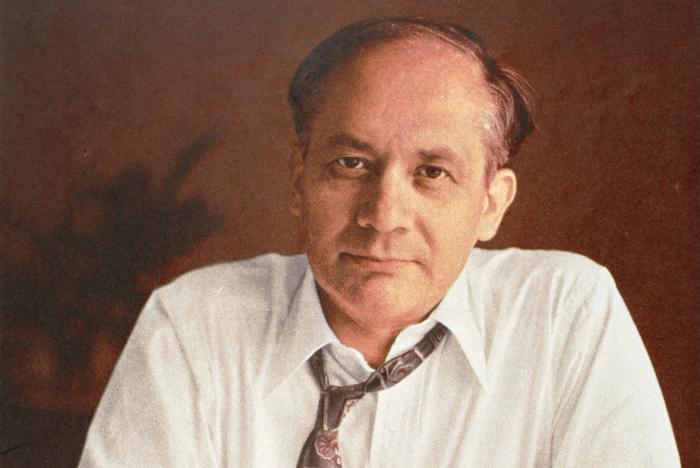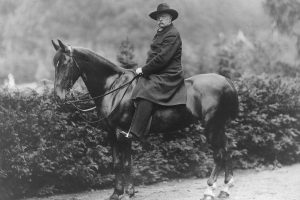
At a quiet New York cemetery in 1959, a handful of people stand around a fresh grave as a casket is lowered. Any passerby seeing the small somber ceremony might assume that the body belonged to a person of little significance. In fact, this casket carries the body of a man who is responsible for one of the largest shifts in international law in human history. Without his efforts, it is likely that the gravest crime mankind has ever committed and continues to commit would still be a crime without a name.
By the end of World War II, the Nazi regime had orchestrated the murder of over 17 million civilians in concentration camps throughout Europe. 1 Despite these egregious atrocities, no one at the time referred to the Holocaust as an act of genocide, not because it was not an appropriate descriptor, but because Raphael Lemkin had not yet coined the word and defined the crime for the world. The outcome of his personal crusade to encode ‘Genocide’ in an internationally recognized and binding Convention to which the US would sign on became his legacy (the US signed on decades after his passing).
Lemkin was born to a Polish-Jewish family in 1900 in a small village called Bezwodne in what was then The Russian Empire. Home schooled by his mother, he proved to be a brilliant scholar. By the time he received his undergraduate degree from Jan Kazimierz University he had learned over 14 languages and showed strong aptitude and interest in international law. After a career as a prosecutor in Poland, he was forced to flee to Sweden to evade capture by the Nazi forces in 1939. However 49 of his relatives were tortured and/or killed, drops in the ocean of inhumanity that was the Holocaust. 2

After fleeing the Nazi invasion, Lemkin eventually made his way to the United States. There he became a prolific professor, lecturing at the law school at Duke University in 1941 and the School of Military Government at the University of Virginia in 1942. He also served as an adviser to the United States War Department specializing in international law. 3
The world first became aware of Lemkin’s concept of genocide after the publication of what would arguably be his most important work, Axis Rule in Occupied Europe, in 1944. Primarily a legal analysis of the behavior of Nazi Germany in occupied territories during World War 2, the book also contained a full definition of the crime Lemkin dubbed “genocide.” 4 After this publication, Lemkin dedicated the rest of his life to getting the international community to acknowledge genocide as a crime under international law.
Lemkin drafted a resolution for a treaty which would officially ban genocide under international law. He then took his resolution on the road, presenting it to any nation which would hear him, hoping to garner enough support to endorse a convention on the subject. After years of lobbying the international community, The United States UN delegation agreed to present Lemkin’s resolution to the General Assembly. Dubbed “The Convention on the Prevention and Punishment of the Crime of Genocide,” the resolution was adopted on December 9th, 1948. It would be another 3 years before enough countries signed on the the convention to make it enforceable. Much to Lemkin’s dismay, The United States was not one of the first 20 signatories. 5

Lemkin dedicated the rest of his life to lobbying those nations which had not yet signed onto the convention, with the United States being his primary target. He invested every moment of his time and every cent of his modest wealth to landing that particular white whale. He eventually died of a heart attack, impoverished, unemployed, and underappreciated, in 1959. His funeral was a small affair, reportedly only attended by 7 people. 6 Yet, today, the is no Law School, no class that teaches Human Rights, nor any conversation of World War II and any of the subsequent Genocides that does not mention his name. More importantly, the Convention provided some tools to prevent or punish such cases.
The greater legacy of his life’s work would not be realized until several decades after Lemkin’s death. The United States would eventually sign the Genocide Convention, but not until 1988. The international community would eventually convict a man of the crime Lemkin coined, but not until the International Criminal Tribunal for Rwanda in 1998 which found Jean-Paul Akayesu guilty of the Rwandan genocide. Three years after that, Radislav Krstic was similarly convicted for the murder of 8,000 Bosnian Muslims in Yugoslavia. 7 Though he died nearly 40 years too early to see the fruits of his labor truly flourish, we can hope that his soul finds solace in the fact that, thanks to him, these heinous actions have a name and are viewed the world over as being among the worst crimes humanity has ever known. Eradicating the crime of genocide still eludes us but at least accountability is now more widespread around the world. 8
- Donald Niewyk and Francis R. Nicosia, The Columbia Guide to the Holocaust (New York: Columbia University, 2000), 43. ↵
- Raphael Lemkin and Donna-Lee Frieze, Totally Unofficial: The Autobiography of Raphael Lemkin (New Haven: Yale University Press, 2013). ↵
- Robert Bliwise, “The Man Who Criminalized Genocide,” Duke Magazine, November 14, 2013, http://dukemagazine.duke.edu/article/man-who-criminalized-genocide . ↵
- Rafael Lemkin, Axis Rule in Occupied Europe: Laws of Occupation, Analysis of Government, Proposals for Redress, (Washington D.C.: Carnegie Endowment for International Peace, Department of International Law, 1944) pg. 79. ↵
- Raphael Lemkin and Donna-Lee Frieze, Totally Unofficial: The Autobiography of Raphael Lemkin (New Haven: Yale University Press, 2013). ↵
- Jay Winter, “Prophet Without Honors” The Chronicle, June 3, 2013, https://www.chronicle.com/article/Raphael-Lemkin-a-Prophet/139515 . ↵
- Robert Bliwise, “The Man Who Criminalized Genocide,” Duke Magazine, November 14, 2013, http://dukemagazine.duke.edu/article/man-who-criminalized-genocide . ↵
- United Nations, “Convention on the Prevention and Punishment of the Crime of Genocide,” United Nations Treaty Collection, 78:1, 1021 (9 December 1948), New York: United Nations, 1951, 278-311. ↵



196 comments
Juan Aguirre Ramirez
After reading this article, I did not know that genocide had not been banned by international law until 1948. Mr. Lemkin’s work is significant since people are now convicted of genocide. I also found it very interesting how the article mentioned that the United States was not one of the first nations to sign against genocide until 1988, even though Mr. Lemkin was a US representative, and how he died without knowing the great impact he left.
Christian Lopez
Articles like this always tend to surprise me when I read them. When thinking of major events in any capacity we never tend to think of some of the smaller changes that follow. Shining light on a dedicated soul that put his life into punishing something he knew was wrong with no reward in his lifetime is a very noble thing. Reading stories such as this gives me a broad sense of what real engagement and devotion to your fellow man is.
Rosa Inocencio
This was a very interesting article. I never truly knew how or from where the word Genocide came from. Who knew the whole process it took for this important word to finally become well known? Now knowing that it is a word that is or could be considered “new” or more recent just leaves one in shock because when you hear it one thinks of past time as in like hundreds of years ago so finding out that it isn’t the way I always thought is just truly shocking. Another thing I found shocking was that only seven people showed up to his funeral, that left me feeling a hole in my heart because when one dies at times they want their whole or closest family members there, but aside from all of that, this was a very interesting and informative article.
Matthew Holland
I really enjoyed reading this story as the writer used very complementary imagery throughout the story, giving me a much stronger feeling of gravity to what was being written about. While the particular story of Raphael Lemkin is new to me, his story of struggle throughout life and only seeing his greatest success in death is an all-too-common theme for many great people of the past. While he unfortunately did not get to whiteness the fruits of his life’s work, I believe he would be happy today that justice is being served due in no small part to the work he devoted his life to.
Esmeralda Gomez
What an inspiring and amazing story. Although Lemkin may have never seen his work come to fruition or be used regularly in the way that it is used now, we truly have to thank him for the work he spent his life dedicated to. The author does an amazing job of weaving important details into an informative yet captivating story.
Aaron Onofre
What I found to be quite interesting about Raphael Lemkin is that even though he had many other opportunities for employment. He decided to dedicate his life and his wellbeing to the establishment of the word “genocide”. Though he will never see the fruit of his labor, his legacy will go on and his unyielding devotion will inspire many to do the same.
Carollann Serafin
this article was very fascinating . Genocide is a very touchy subject and honestly i feel like i have never even touched based with it other than the holocaust time period in middle school. It is sad that Lemkin will never get the recognition that he deserves alive but I am glad we have something inspiring to remember and share him by. His work and effort should never be forgotten and this article truly needs more recognition.
Greitin Rodriguez
The world is changing every single day. Humanity and the world as we see it is changing. We have made these realizations slowly, but in order to make a change happen we need to all come together. When we stand alone we can make a small change and influence the minds of others. But, if we all stand together and fight we can all make a big great impact in the world; just as Raphael Lemkin was trying to do. He tried to make not only the people see, but countries to see that killing people, because they are different from them is a crime. It took many years, even after his passing in order it to be a crime and for his word genocide to mean something in this world. As a country and nation we need to stop the negativity and help the world change for the better.
Andrew Ponce
The way in which this article differs from others is that not only does it bring an interesting story to the forefront, but it also truly educates the audience on a word that one would not suspect has so much history behind it. Many people, especially today, use the term “genocide” to describe the Holocaust. Many people use that term with little knowledge of the struggles Lemkin endured to ensure global accountability is taken. Through this article, people have the opportunity to see Lemkin’s efforts and how he truly just wanted to make a positive change for the world. Excellent article!
Kaylah Garcia
The fact that Lemkin was never treated with respect and appreciation he deserved is very upsetting. I had never heard of the legacy he left behind until now, in 2023. I will admit that having read this piece, I am better knowledgeable about Lemkin’s past. Furthermore, I now have a greater understanding of the phrase “genocide.” Regarding the piece itself, I’ll just remark that it was brilliantly written. It was concise but to the point and included all the background information required to connect everything. Overall, I thoroughly enjoy it.